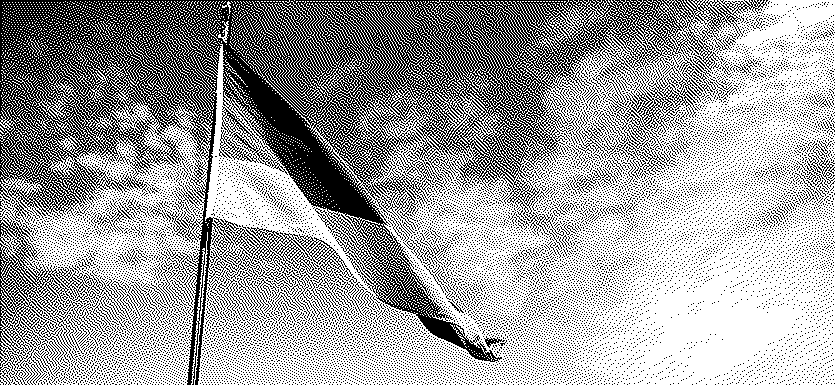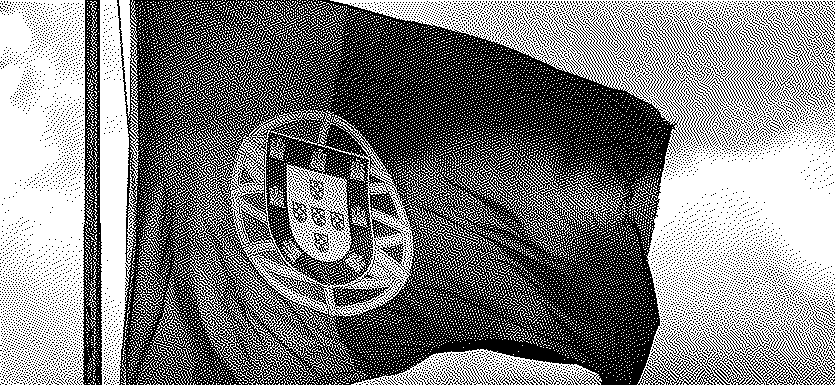Europe is facing a triple challenge, namely1: the watershed moment, i.e. Russia’s war of aggression against Ukraine, fundamental transformations (sustainability, technology, demography, and economic security) and the permacrisis. All of this against the backdrop of European political fragmentation and challenges to democracy and the rule of law, both in EUrope and internationally. This has already upended European policy, with the EU acting far more swiftly and, by and large, unitedly in its reaction. But we still have not recognised the full consequences of the war in Ukraine, and we are only at the beginning of this new era; much more must be done. Europe’s moment of truth will require many difficult decisions. The EU will have to change fundamentally, including, but not limited to, in the field of industrial policy and defence. The most challenging question will be whether we respond together or whether we allow the fragmentation into national responses. This is why the Franco-German relationship matters: can it act as a driver in this new era of European integration as it has in the past? For now, the jury is out.
Russia’s war of aggression against Ukraine shows the need to strengthen our defence policy, both at national and European level. The increase in the defence effort opens up the opportunity to support a European industrial strategy for a number of military equipment items. Why is it so difficult to agree on common European military industrial projects?
LGC
In this new era, the EU will have to invest more, but even more importantly, better in hard security. This will entail continuing to support Ukraine with current weapon stocks, which will have to be replaced, as well as building more capacity, also with a long term view that Europe will have to take far greater responsibility for its own security than it has in the past. Already, collectively, the EU invest a lot of money into hard security but, with few exceptions, this is a fragmented market. Consequently, the militaries of EU member states operate too many different weapons systems, which creates practical and economic inefficiencies, as well as not benefitting from common procurement, for example in terms of price/cost reductions.
These benefits are not being realised because it would require a common industrial policy, with a far greater strategic coordination of defence spending, including assessing European capacities and capabilities at the European rather than the national level. Not only is this difficult economically, as a consolidation of the defence industry would be unavoidable, it is also tricky politically, because of practical questions such as differing arms export controls. It also touches the core of state functions, which many countries are reluctant transfer to the EU level. In addition, there are different political stances on hard security, which would need to be addressed, for example the extent of weapons support to Ukraine.
German officials have adopted the term “European sovereignty” promoted by Emmanuel Macron. However, it probably does not mean the same thing on both sides of the Rhine. In which areas should the EU assert its strategic sovereignty and/or strategic autonomy as a priority?
LGC
In this new era, the EU has to retain the capacity to effectively defend its values and interests. At the same time, it is crucial that this is not a Trojan horse for protectionism or for a re-nationalisation of EU policy, for example with regard to state aid and competition controls. A common, strategic approach is needed, across a number of dimensions:
- Economic security (reducing asymmetric vulnerabilities on external powers, ensuring security of supply).
- Security & defence (ensuring the EU’s capability to defend itself against external threats)
- Technological sovereignty (ensuring Europe is at the forefront of new key technologies)
- Having the capacity to address common societal problems, such as pandemics or climate change
This will require action across a number of policy fields, including:
- Strengthening European monetary and financial autonomy.
- Strengthening Europe’s research, scientific and technology base.
- Protecting assets critical to national security from foreign interference.Enforcing a level playing field in both domestic and international competition.
- Developing a common industrial policy.
What attitude should Europeans adopt concerning American trade protectionism and the risk of American strategic disengagement from Europe? What strategy should be adopted in the face of the hardening of the Chinese regime? What Franco-German convergences on this double challenge?
LGC
USA
Even though the United States have entered a phase of erratic unilateralism, it does not mean that the US will withdraw from Europe as a security actor. Hence, preserving a strong transatlantic partnership is a core strategic interest for Europe. However, the EU must take more responsibility for its own security and defense, as the strategic interest of the US is shifting towards the Asia-Pacific region. The US will therefore become much more selective in its engagement in and around Europe. In future, there is likely to be an administration that will be far less willing to support Europe, so there needs to be contingency planning and long term strategic investment in the EU. The EU must increase its strategic sovereignty and act to defend its values and interests, which do not always coincide with those of the US, in particular in the economic field. In short, the EU must be a stronger and more resilient partner, but it also needs to invest in the future to remain a credible economic power.
China
China will continue to be an important economic partner for the EU and continuing cooperation with China is needed to address global challenges (e.g., climate change, regional conflicts). However, the EU must become more assertive in defending its values and interests, knowing that this will entail economic costs. EU needs to demand a level playing field for European and Chinese companies to ensure open and fair trade. China does too little in this regard and has taken a noticeable turn toward isolation and away from openness. Coordinating industrial policies and technology regulation with other technology powers, not only the US but also like-minded countries. The EU also needs to invest in new global partnerships, with a particular focus on Africa.
The energy crisis triggered by Russia and the increasingly uncooperative attitude of China open a phase of economic uncertainty for the European Union. Will Germany continue to be the economic leader of Europe? How can Germany build a Europe-wide consensus on the EU’s economic and financial priorities?
LGC
Germany’s economy is challenged by the current global economic environment, given its dependencies particularly on Russian gas. But this can be overcome not least by reducing dependency on fossil fuels. Much more importantly is the long term development, where all of the EU is challenged. In essence, Europe is losing the global race when it comes to future technologies. The only way this can be addressed is a common effort to invest in the future, which will mean much greater common policies. The current debates on economic governance show that all countries in the EU are still backward looking rather than confronting the situation in which we now are. We are not making enough progress on developing common policies, for example on industrial policy, energy, taxation or on the Capital Markets Union.
The green transition and the energy transition to zero carbon has so far relied partly on Russian gas for a transitional phase. How does Germany intend to meet its GHG emission reduction commitments? How can the Franco-German debate on national energy mixes (nuclear vs renewable energies) be relaxed?
LGC
How does Germany intend to meet its GHG emission reduction commitments?
Through the expansion of renewable energies, reduce energy demand and ending the use of fossil fuels in all sectors of the economy, but drawing on expensive interim sources such as LNG.
How can the Franco-German debate on national energy mixes (nuclear vs renewable energies) be relaxed?
Setting nuclear power against renewable energies does not make much sense. An exit from nuclear power would prevent France from fully meeting the climate challenges. France and Germany must allow each other to follow their own energy path as long as it reduces CO2 emissions. Keeping in mind that France and Germany share the same goals for the future which is the compliance with the Paris Climate Agreement and the promise to be climate-neutral by the middle of the century. However, to achieve this will require a common energy policy in the EU.
Does the new discourse on the global change of era (“Globale Zeitenwende”), leave a special opportunity for Franco-German cooperation or does France appear too weakened, from an economic and political point of view, to make this partnership work?
LGC
The “Zeitenwende” goes beyond the war in Ukraine and beyond the issue of European security. It is about finding out how the European Union can remain an independent actor in an increasingly multipolar world. But there is very little strategic thinking in Europe at the moment, and even less common strategic thinking. There is a need for regular exchange at the political level and a more substantial conversation at all levels of state institutions to build a deeper understanding between France and Germany but this needs to also go beyond just these countries. There is a need to recognise that this new era requires far greater European cooperation across a wide range of field, breaking long standing taboos and hesitations. The most difficult decisions are yet to come. Only by working together can European countries remain credible actors globally.
Germany has fully assumed its responsibilities as a host country for migrants and refugees. This policy also helped to mitigate the impacts of the ageing population on the labour force. How will German migration policy evolve in the future? What are the prospects for a European consensus on this highly divisive issue?
LGC
Migration has caused great tensions within and among member states. While migration policy cannot be solved on a national level, it is unlikely that we will see much progress at European level. Ideally, the EU would devise an immigration strategy that is pragmatic and aligns with its values, for example reducing irregular migration while strengthening legal paths to Europe. There is a need for the protection of external borders that is both effective and aligned with EU‘s rule of law standards and for more binding partnerships with countries of origin and transit, as well as new coordination efforts that are closely targeted to needs arising out of the recent crises, such as data- and knowledge-sharing. However, at best the EU will only make incremental progress, given the political contentiousness of the issue, which has not been changed by the acceptance of Ukrainian refugees.
To what extent are Franco-German differences based on constitutional, institutional or political differences? If so, what are the solutions for promoting convergence on these three fronts?
LGC
France and Germany, as well as the other countries in Europe, have very different political systems. These are unlikely to converge, and, in fact, it would run counter to national political cultures. So, the question should be how to better cooperate and coordinate. This includes ensuring that there is not only contact at the highest political level but a constant exchange at all levels, including outside government. More efficient working methods can be devised, for example with joint policy teams on specific cooperation projects. However, the most important level of cooperation and coordination is the EU. Strengthening European integration is the best way to foster the Franco-German relationship.
Interview by Marc-Olivier Padis.


